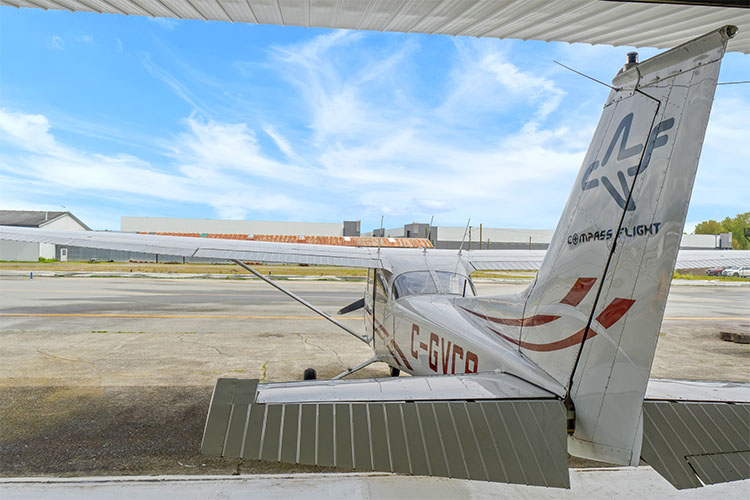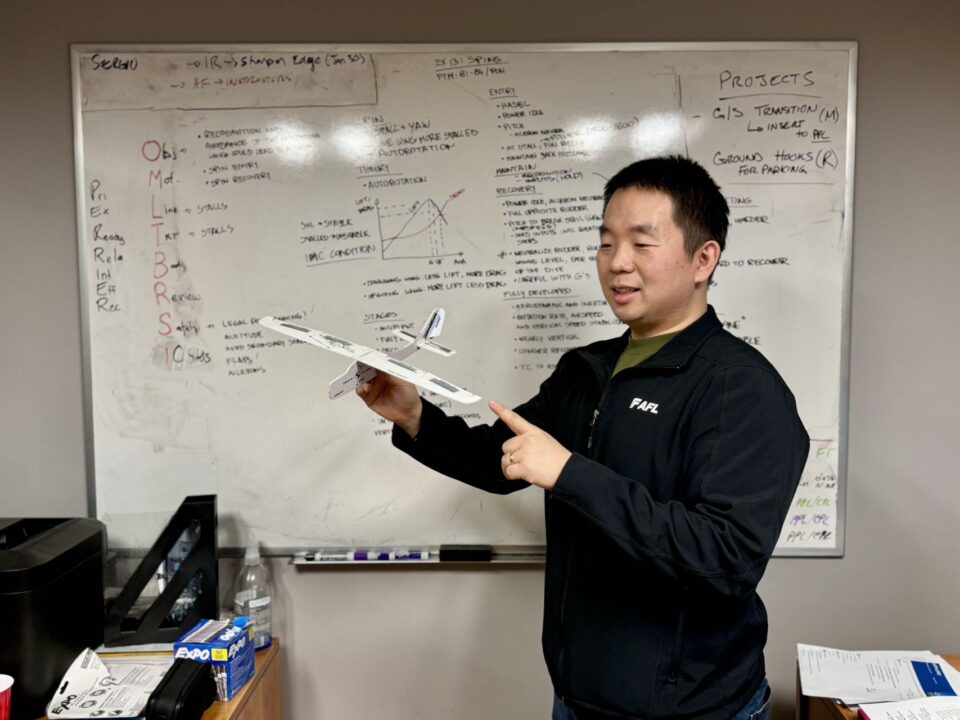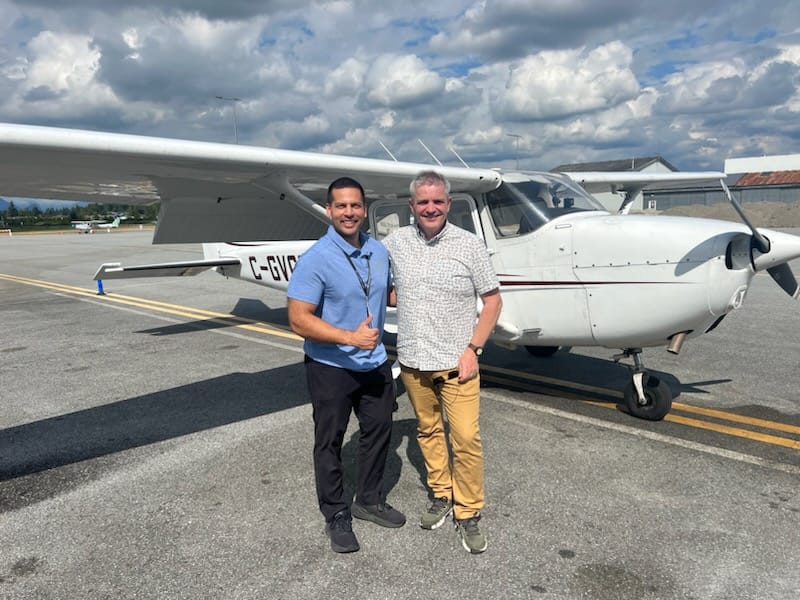Recertify your instrument rating with an instrument proficiency check.
Executive Compass Flight Institute can help you meet your instrument recency requirements.
COST: $255/hr with instructor
Maybe you have not flown by the instruments in a while or maybe you are prepping for a new flying job. Whatever your instrument recency requirements Compass Flight can help you.
As per Advisory Circular (AC) No. 401-005, you are required to maintain instrument currency to exercise the privileges of your instrument rating. Compass Flight Institute has a Transport Canada approved FSTD and flight instructors who meet the qualifications to help your with your recency requirements. If you are outside of 24 months and/or need an IPC we can provide a Transport Canada flight examiner to validate your instrument rating. Contact us about instrument proficiency checks.

Why is an Instrument Proficiency Check Important?
An Instrument Proficiency Check (IPC) is crucial for pilots who hold a valid instrument rating. The primary purpose of the IPC is to ensure that pilots maintain the skills and knowledge required to safely operate under Instrument Flight Rules (IFR). Regular proficiency checks are essential because flying in instrument meteorological conditions (IMC) demands precise control and familiarity with flight instruments, navigation, and communication procedures.
Completing an IPC is mandatory for any pilot who has not met the IFR currency requirements within the previous 24 months. Without this check, a pilot cannot legally file an IFR flight plan or conduct instrument approaches. The IPC covers various aspects of instrument flying, including holding patterns, instrument approach procedures, and managing unusual attitudes, ensuring pilots are prepared for all phases of flight.
Moreover, an IPC is an opportunity to refresh and update knowledge on air traffic control procedures and any changes in aviation regulations. This ensures that pilots remain current and competent, reducing the risk of incidents in challenging flying conditions. Regular proficiency checks contribute significantly to overall flight safety, making them an indispensable part of maintaining an instrument rating.
Requirements for an Instrument Proficiency Check
To complete an Instrument Proficiency Check (IPC), a pilot must meet specific requirements outlined by aviation authorities. Firstly, the pilot must hold a valid instrument rating. The IPC is designed to assess the pilot's ability to operate under Instrument Flight Rules (IFR) and must be conducted by a certified examiner.
The IPC involves both ground and flight components. The ground portion includes a review of instrument flight rules, air traffic control procedures, and navigation techniques. Pilots must demonstrate a solid understanding of these concepts before proceeding to the flight portion.
The flight component of the IPC typically includes various maneuvers and procedures to test the pilot's proficiency. These include holding patterns, instrument approaches, and recovery from unusual attitudes. The pilot must demonstrate the ability to control the aircraft solely by reference to flight instruments, simulating instrument meteorological conditions (IMC).
Additionally, the use of full flight simulators is encouraged for practicing complex scenarios and emergencies. Completing an IPC ensures that pilots remain competent and confident in their instrument flying abilities, meeting the regulatory requirements for IFR operations.
Preparing for Your Instrument Proficiency Check
Preparing for an Instrument Proficiency Check (IPC) requires a thorough review of both theoretical knowledge and practical skills. Begin by revisiting the basics of your initial instrument rating training, including instrument flight rules (IFR), instrument approach procedures, and air traffic control (ATC) communications. Reviewing the regulations and procedures that have changed since your last check is essential.
Practicing in a full flight simulator can be highly beneficial. Simulators allow you to replicate instrument meteorological conditions (IMC) and practice maneuvers like holding patterns, instrument approaches, and unusual attitude recoveries without the risks associated with real flight. Focus on each phase of flight, from pre-flight planning to execution, to ensure you are well-prepared for every scenario.
Flight instructors recommend conducting practice flights under IFR conditions, either in actual IMC or simulated conditions using a safety pilot. This helps to build confidence and reinforce your ability to handle the aircraft solely by reference to flight instruments. Additionally, reviewing and practicing primary flight maneuvers and instrument approaches can significantly enhance your preparedness.
By combining theoretical review, simulator practice, and real flight experience, you can ensure that you are fully prepared to complete an IPC successfully and maintain your instrument rating.
Tips for Passing Your Instrument Proficiency Check
Successfully passing your Instrument Proficiency Check (IPC) involves thorough preparation and strategic practice. Here are some tips to help you succeed:
- Review Key Concepts: Start by revisiting the core principles of your initial instrument rating training. Focus on areas such as IFR flight planning, instrument approach procedures, and ATC communication protocols. Understanding these fundamentals is crucial for the IPC.
- Simulate Real Conditions: Use flight simulators to practice in a controlled environment. Simulators allow you to replicate IMC and practice critical maneuvers like holding patterns, instrument approaches, and unusual attitude recoveries. This helps build confidence and competence.
- Practice with a Flight Instructor: Conduct practice flights with a flight instructor to simulate real IFR conditions. This provides practical experience and helps reinforce your skills in a realistic setting.
- Focus on Weak Areas: Identify any weak points in your instrument flying skills and address them through targeted practice. Whether it’s managing flight instruments or executing precise maneuvers, focusing on improvement areas can significantly enhance your overall proficiency.
- Stay Calm and Composed: During the IPC, maintaining a calm and composed demeanor is essential. Stress can lead to mistakes, so practice relaxation techniques and stay focused on each task.
By following these tips and dedicating time to thorough preparation, you can increase your chances of passing the IPC and maintaining your instrument rating.









